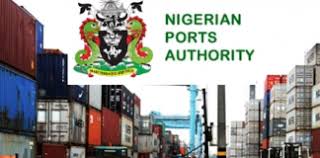The Nigerian Ports Authority (NPA) has launched a port emissions inventory initiative designed to methodically measure and mitigate greenhouse gas (GHG) emissions associated with the nation’s maritime activities. This comprehensive inventory will encompass emissions produced by various port-related operations, including those from vessels at berth, cargo-handling equipment, and service vehicles. The initiative was highlighted by NPA’s Managing Director, Abubakar Dantsoho, during his remarks at the 2024 World Maritime Day celebrations in Lagos. He underscored that with international maritime trading contributing roughly three percent to global GHG emissions, the implications are dire for Nigeria if proactive measures are not undertaken.
Dantsoho’s address, delivered by Ibrahim Umar, the Executive Director of Engineering and Technical Services, emphasized the urgent need to address the environmental threats posed by climate change. He noted that these threats, amplified by increasing GHG emissions, could lead to significant challenges for Nigeria’s coastal and port infrastructure, which includes rising sea levels and extreme weather phenomena that endanger surrounding communities. His call to action centered on the necessity of implementing the Port Emissions Inventory as a vital instrument for tracking emissions and formulating strategies for their reduction within the nation’s port operations.
The NPA is committed to an integrated approach where safety, environmental integrity, and efficiency take center stage in maritime operations. Dantsoho expressed that cultivating a secure, clean port system is essential for ensuring the safety and integrity of maritime activities. He advocated for the incorporation of safety considerations into port management practices and highlighted the imperative of adhering to international environmental standards. This commitment extends to advancing modernized port reception facilities, which will be crucial for the proper disposal of waste generated by vessels, thus helping to prevent marine pollution.
In line with its sustainability objectives, Dantsoho reiterated the NPA’s focus on employing smart port technologies that enhance operational efficiency, minimize delays, and reduce environmental impacts stemming from congested port activities. Moreover, in collaboration with shipping companies, the NPA is promoting slow-stepping practices, encouraging vessels to decrease speed to lower fuel consumption and decrease emissions. This is seen as a crucial step toward achieving a sustainable maritime environment while reducing the carbon footprint of shipping operations.
The NPA has stressed the importance of collective action in addressing the intertwined challenges of safety and environmental conservation. Dantsoho called upon various stakeholders—including shipping lines, port operators, government agencies, and the private sector—to work together to foster a cleaner and safer maritime industry. Such collaboration is deemed necessary to navigate the complexities of modern maritime trade while ensuring that environmental considerations guide future practices.
In conclusion, the Nigerian Ports Authority is poised to take a leading role in steering the future of maritime operations with a focus on safety, sustainability, and technological advancement. Dantsoho’s vision encompasses a thriving maritime industry that serves both current and future generations, emphasizing the need for a strategic approach in tackling GHG emissions and enhancing port operations. By fostering partnerships across the maritime sector, the NPA hopes to create a more resilient and environmentally responsible framework for Nigeria’s ports, ensuring their operational integrity and ecological viability in the years to come.


